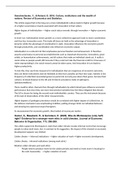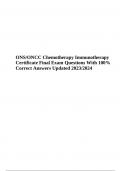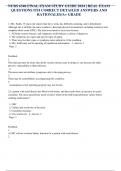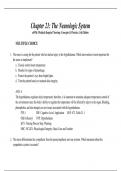Samenvatting
Summary Everything you need to know about the articles of Culture and Institutions (general and economics track)
This document provides everything you need to know about the articles of Culture and Institutions (general and economics track) to be well prepared for the exam. It includes things of importance that have been asked in previous exams and also conceptual models to visualise the causal mechanisms use...
[Meer zien]













